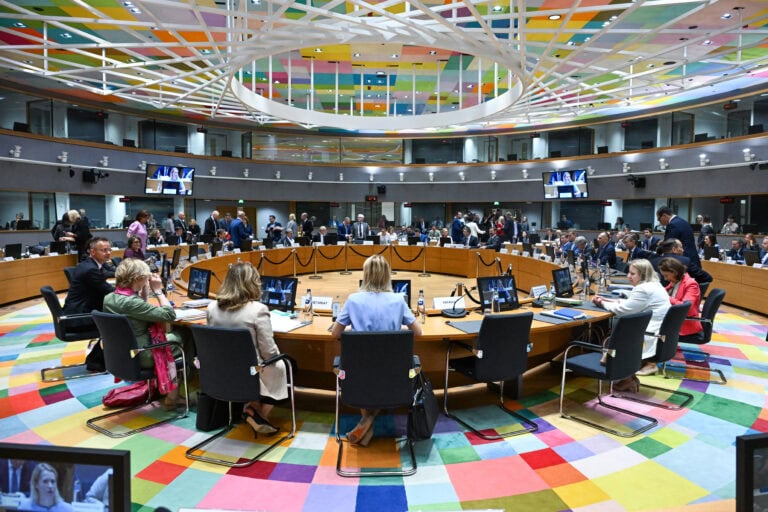In February 2025, all EU Member States jointly called on Israel to allow full humanitarian access to Gaza. Within days, Israel imposed a complete blockade, cutting off aid for eleven weeks. Despite repeated EU appeals to respect international humanitarian and human rights law, violations continue. Settlement expansions and demolitions of Palestinian structures, including EU-funded projects, persist across the West Bank.
This raises serious questions about whether dialogue alone is delivering results.
Dialogue is not enough: the EU must uphold its commitments
On 23 June, EU Foreign Affairs Ministers discussed the EU–Israel Association Agreement, specifically Article 2, which commits both parties to respecting human rights. A review by the European External Action Service (EEAS), requested by 17 Member States, confirmed indications that Israel is failing to meet these obligations. Under the Agreement, this gives the EU the option to take appropriate measures, including the suspension of parts or all of the Agreement. In cases of “special urgency,” such steps can be taken immediately. The humanitarian situation in Gaza clearly qualifies.
These human rights clauses are not unique to the EU–Israel agreement. They are a core feature of EU external relations, included in agreements with countries across the world. They reflect the EU’s longstanding commitment to ensuring that its partnerships uphold respect for human rights, democratic principles, and international law. When these principles are undermined, the EU has both the right and the responsibility to respond.
Despite this, Member States remain divided. Spain and Ireland have called for the suspension of the Agreement and additional measures, while others prefer just to maintain dialogue. But recent events raise serious doubts about whether dialogue alone produces meaningful results.
In February, ahead of the EU – Israel Association Council, all Member States agreed to demand full humanitarian access to Gaza. Yet, shortly afterwards, Israel imposed a full blockade, preventing aid from reaching the population for eleven weeks. EU statements have urged respect for international humanitarian and human rights law, yet violations persist. In the West Bank, settlement expansions and demolitions of Palestinian structures, including EU-funded projects, continue despite years of EU condemnation.
These repeated patterns show that expressions of concern, however well-intentioned, are not enough. The EU has clear, lawful options at its disposal, including trade conditionality, diplomatic measures, and the temporary suspension of agreements, to defend human rights and international law. These tools exist precisely for situations where dialogue alone has failed.
The EU’s obligation to act under the Genocide Convention
In January 2024, the International Court of Justice ruled that there was a plausible risk of violations of the Genocide convention in Gaza. From then on, third States had, without doubt, the obligation to use their leverage and employ all lawful means at their disposal to prevent breaches of the Genocide Convention.
This is not a matter of choice, but of compliance with international law.
The humanitarian consequences of inaction are stark. Since October 2023, over 56,000 Palestinians have been killed in Gaza. Hunger is widespread with over a fifth of the population facing starvation. Pregnant women face heightened risks due to food shortages. The health system has been decimated, with nearly all hospitals damaged or destroyed. 22 Israeli hostages are still being held in the Strip. Civilians continue to bear the brunt of the crisis.
The EU cannot remain passive. Upholding its values and legal commitments means applying the mechanisms already at its disposal to protect civilians and promote respect for international law.
Conclusion
This is a call for the EU to use the tools enshrined in its own agreements and legal framework to uphold human rights and international law. These human rights clauses are not symbolic – they are binding commitments designed to ensure that Europe’s partnerships adhere to its human rights principles. The credibility of the EU on these matters depends on consistent action when those principles are under threat or being breached.
Dialogue remains important, but it must be backed by meaningful, lawful measures. The humanitarian situation in Gaza and the ongoing violations cannot be addressed by words alone. It is time for the EU to act.



